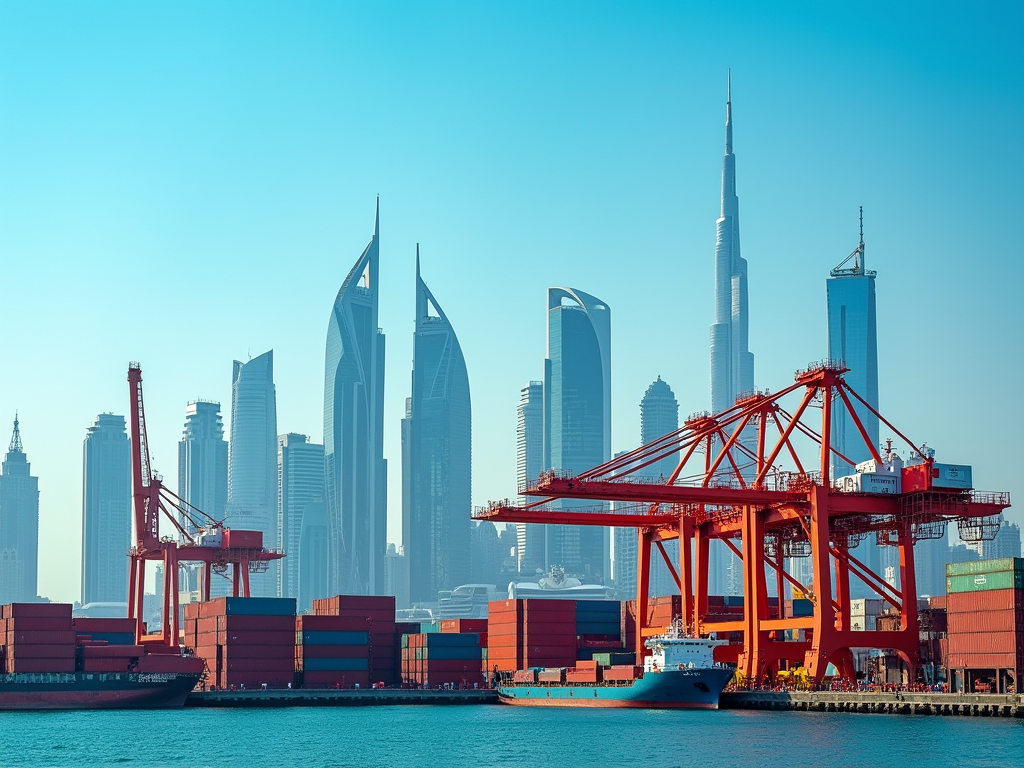Dubai’s digital freelancing economy has witnessed exponential growth in recent years, positioning the city as a leading hub for global freelancers. With its strategic location, business-friendly policies, and advanced technological infrastructure, Dubai has become a prime destination for professionals seeking flexible career opportunities across various industries.
A key factor driving this trend is the Dubai freelance visa, which enables individuals to legally work as independent contractors without the need for company sponsorship. This initiative has opened doors for professionals in fields such as digital marketing, IT, design, consulting, and content creation, allowing them to thrive in a dynamic and competitive marketplace.
This article explores the factors fueling Dubai’s booming freelancing economy, highlighting how the city is shaping the future of independent work and why obtaining a freelance visa is an essential step for those looking to capitalize on this growing trend.
Factors Contributing to the Growth of Freelancing in Dubai

Numerous factors have propelled Dubai’s digital freelancing economy into the spotlight. Firstly, the government’s commitment to innovation and entrepreneurship plays a pivotal role. Initiatives like the Dubai Internet City and the Dubai Free Zone provide essential resources and support for freelancers. Additionally, the increasing demand for flexible work arrangements in the wake of the COVID-19 pandemic has further fueled this trend. Furthermore, the ease of access to high-speed internet and cutting-edge technology creates a conducive environment for remote work. Other factors include:
- Tax-Free Income: Freelancers in Dubai enjoy zero income tax, a significant incentive for professionals from around the world.
- Diverse Market Demand: The city’s multicultural landscape fosters a diverse market, leading to an abundance of freelancing opportunities across various industries.
- Networking Opportunities: Extensive networking events, workshops, and community groups enable freelancers to connect and collaborate, expanding their professional reach.
The Impact of Technology on Freelancing

Technology has been a primary driver behind the evolution of Dubai’s freelancing sector. The rise of digital platforms such as Upwork, Freelancer, and Fiverr has made it easier for freelancers to market their skills and find clients globally. Furthermore, tools for virtual collaboration, such as Zoom and Slack, facilitate seamless communication, enabling teams to work together from various locations. In addition, advancements in artificial intelligence and automation are reshaping traditional job roles, leading to the emergence of new freelancing opportunities. As technology continues to evolve, it will undoubtedly play a critical role in further shaping Dubai’s freelancing landscape. This fusion of technology and freelancing has also initiated a trend toward remote work that emphasizes flexibility and adaptability.
Despite the many advantages, freelancers in Dubai encounter several challenges that can hinder their growth. One of the most significant hurdles is the legal and administrative requirements associated with freelancing. Obtaining the necessary licenses and permits can be time-consuming and complicated, particularly for newcomers. Moreover, fluctuating market demand can lead to income instability, posing financial risks for freelancers. Competition is also fierce, with an influx of professionals from around the globe, making differentiation crucial. Other common challenges include:
- Isolation: Freelancers often work alone, which can lead to feelings of isolation and disconnect from a community.
- Client Management: Navigating client relationships and expectations can be challenging without the structure of a traditional workplace.
- Limited Benefits: Freelancers do not have access to employee benefits such as health insurance and retirement plans, necessitating self-management of these areas.
The Future of Freelancing in Dubai
The future of Dubai’s freelancing economy looks promising due to ongoing investment in technological infrastructure and a growing cultural shift towards remote work. As more individuals embrace freelancing, the government is likely to simplify regulations and optimize support mechanisms. The potential for collaboration between local and international freelancers will also expand, enriching the overall market ecosystem. Additionally, emerging sectors such as digital marketing, graphic design, and IT consultancy are expected to see significant growth, further bolstering the freelancing landscape. The integration of sustainable practices and a focus on skill development will also shape the future of the economy, creating a thriving environment for freelancers across various domains.
Conclusion
In summary, Dubai’s digital freelancing economy is thriving, influenced by technological advancements, supportive government policies, and changing employment trends. While challenges exist, the overall outlook is positive, with numerous avenues for growth and development. As freelance professionals from around the world continue to flock to this vibrant city, Dubai is poised to maintain its position as a leading player in the global freelancing landscape.
Frequently Asked Questions
1. What is the main factor attracting freelancers to Dubai?
The tax-free income policy offered in Dubai is one of the primary reasons freelancers are attracted to the city, along with the supportive business environment and diverse opportunities.
2. Are there any platforms specifically for freelancers in Dubai?
Yes, platforms like Dubai-based freelance websites, as well as global platforms such as Upwork and Fiverr, are commonly used by freelancers to find work and clients in the region.
3. What challenges do freelancers face in Dubai?
Freelancers often face legal and administrative hurdles, income instability, fierce competition, and the lack of employee benefits such as health insurance.
4. How is technology influencing freelancing in Dubai?
Technology facilitates connectivity, enhances productivity, and opens new avenues for freelance opportunities, making it an integral part of the freelancing landscape in Dubai.
5. What is the future outlook for freelancing in Dubai?
The future of freelancing in Dubai appears bright, supported by ongoing investment in technology, government initiatives, and an increasing shift towards flexible work arrangements.


